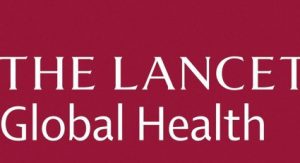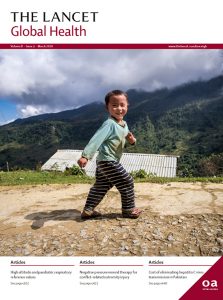Nicaragua’s response to the COVID-19 pandemic is the subject of correspondence in the medical journal, The Lancet. A letter from 13 health professionals, based in the USA (except for one in Costa Rica), criticised the Nicaraguan government’s response to the COVID-19 epidemic as ‘careless’ and ‘perhaps the most erratic of any country in the world to date’. My response is reproduced here. They then replied, but did not address most of the key points I made in examining their original arguments. They quote the Pan-American Health Organisation as criticising Nicaragua – but while there is specific disagreement on the advisability of a national ‘lockdown’, the Nicaraguan government has been working closely with the PAHO (part of the World Health Orgainsation) since a joint commission was established to confront the epidemic on January 30, when it was one of the first countries outside Asia to recognise the potential impact of the virus.
In criticising Nicaragua’s response to the coronavirus disease 2019 (COVID-19) pandemic, Thais P Salazar Mather and colleagues fail to note that the country has the lowest level of infection in the Americas, with (as of April 22, 2020) ten cases of COVID-19. They ignore the Nicaraguan Government’s measures to achieve this low number and the dilemma, recognised by Oxfam, that faces resource-limited countries in deciding when to implement physical distancing.
Nicaragua has had health checks at its borders for months, far sooner than in the USA, and these checks are followed up with phone calls and house visits. Two lengthy and porous land frontiers make keeping Nicaragua’s borders open preferable, to minimise informal crossings that make health checks impossible. Community-based health programmes in Nicaragua mean that most households have been visited three times by health advisers telling people how to combat COVID-19. 19 hospitals have been identified to receive individuals with COVID-19, and 37 000 health workers and 250 000 volunteers have been trained.
All confirmed COVID-19 cases in Nicaragua have been travellers from abroad or their immediate contacts; no community transmission has been judged to have taken place so far and is the reason wider measures have not yet been implemented. If self-isolation becomes necessary, it will carry a massive cost; most people need to go to work daily to eat. No reliable mechanism exists to distribute subsidies, nor can small resource-limited countries borrow money with impunity to pay for such support. Many people in Nicaragua live in cramped houses in densely populated neighbourhoods, making physical distancing difficult.
Mather and colleagues cite the contrasting policies of El Salvador and Honduras. In El Salvador, President Nayib Bukele has told people to self-isolate, offering a subsidy of US$300 per family that led to massive unregulated queues outside government offices. The Los Angeles Times reported on April 7, 2020, that the lockdown in El Salvador is enforced by gangs with baseball bats.
In Honduras, a national curfew has led to police violence, more than 1000 arrests, and almost 900 vehicles being confiscated, according to human rights group COFADEH (Committee of Relatives of the Disappeared in Honduras). Despite these actions, both countries have much higher infection levels than does Nicaragua.
Accusing the Nicaraguan Government of an erratic response to the epidemic, “violating the human rights of its citizens”, is both inaccurate and unfair. The government is genuinely attempting to balance the fight against COVID-19 with the economic needs of the population. To impose an untimely lockdown would not only cause huge resentment and hardship but could be counterproductive. Mather and colleagues should address these dilemmas, not omit to mention them.



 John Perry lives in Masaya, Nicaragua where he works on
John Perry lives in Masaya, Nicaragua where he works on